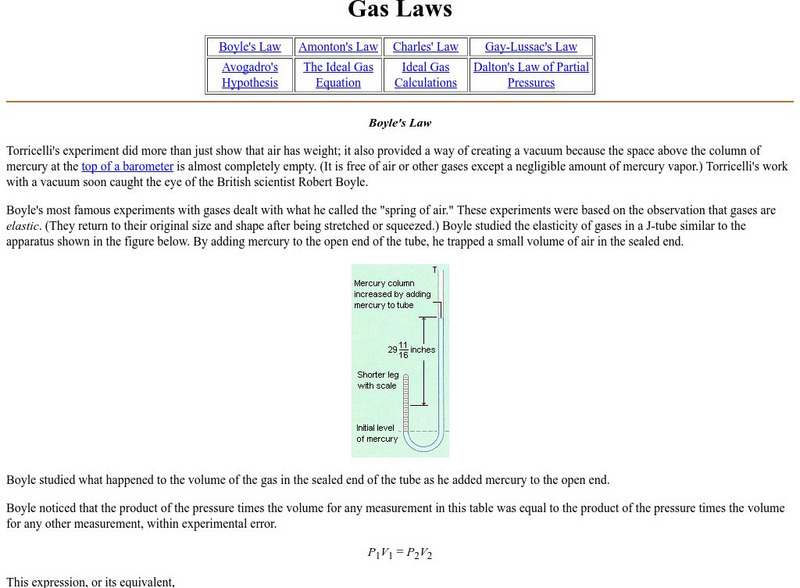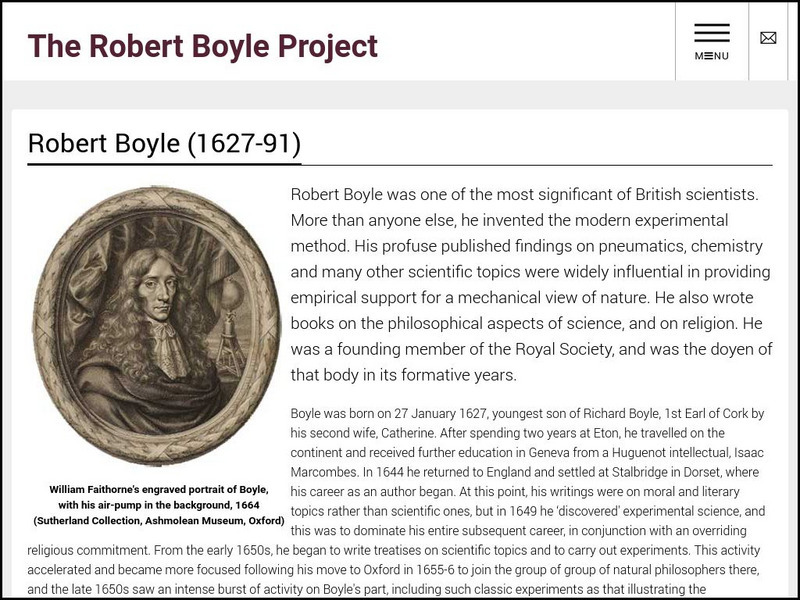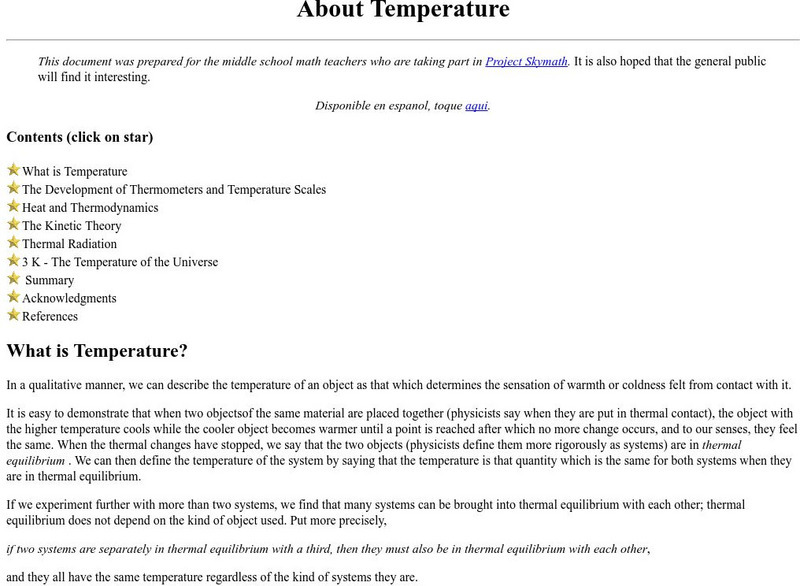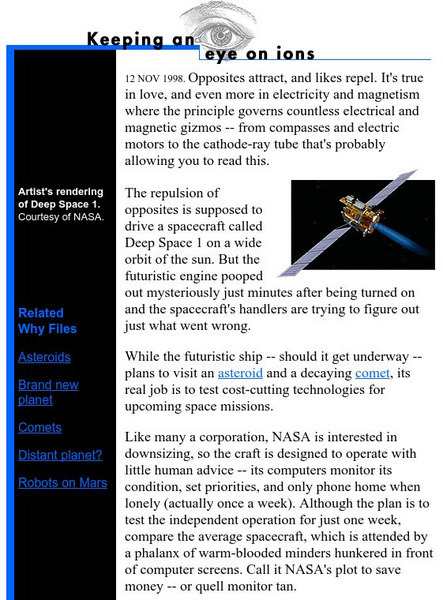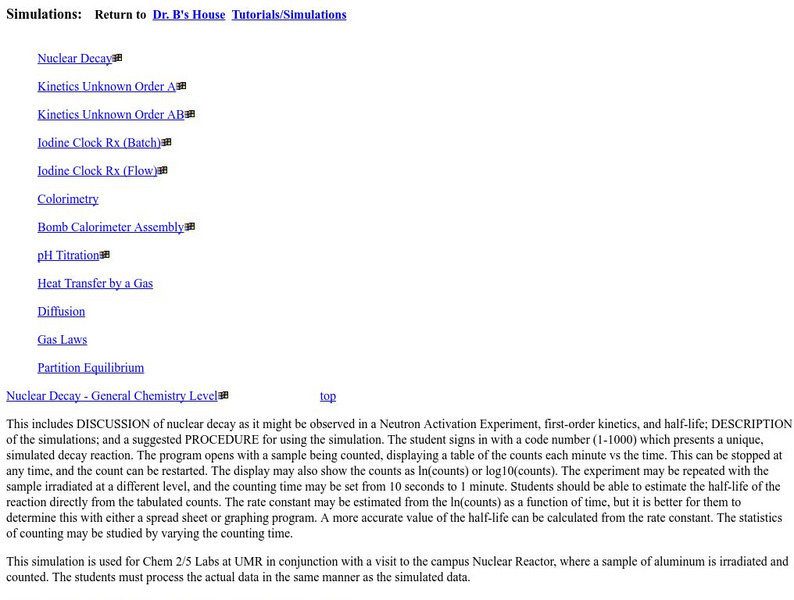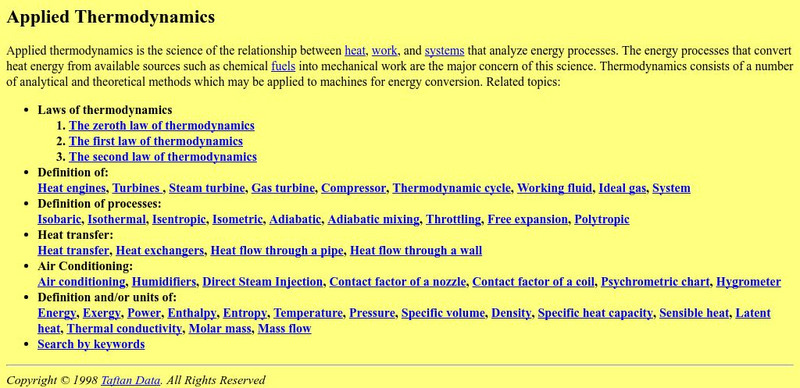Purdue University
Gas Laws
This chemistry tutorial explains the gas laws (e.g., Boyle's Law) with applications.
Texas Education Agency
Texas Gateway: The Ideal Gas Law
Explore the thermal behavior of gases, in particular, examine the characteristics of atoms and molecules that compose gases. Learn about the ideal law of gases in terms of molecules and moles. Multiple formulas and examples are provided.
Ohio State University
Betha Chemistry Tutorial
This site resource offers tutorials on the gas laws, balancing chemical equations, and quantum mechanics.
University of Florida
Chemistry 2041 Lecture Notes: Ideal Gases
The ideal gas law is presented and explained. The derivation of other gas laws is performed. Gas behavior is explained in terms of gas laws. Excellent graphics.
Other
Nye Thermodynamics: Basic Gas Turbine Theory
Outstanding information (and a lot of it) on gas turbine (jet) engines. Describes the history behind their development and the theory behind their operation. Well written and includes very informative graphics.
Texas Education Agency
Texas Gateway: Atomic and Molecular Explanation of Pressure and Temperature
Learn how to calculate the kinetic energy of a gas molecule, describe the relationship between the temperature of a gas and the kinetic energy of atoms and molecule, and describe the distribution of speeds of molecules in a gas. The...
Ministerio de Educación (Spain)
Ministerio De Educacion: Leyes De Los Gases
Learn about the different laws of gases with these interactive activities and test your knowledge with the exercises at the end.
Royal Society of Chemistry
Royal Society of Chemistry: Gridlocks: Level 3
A collection of grid puzzles that cover a wide variety of topics in advanced high school chemistry. These are excellent for topic review and reinforcement. The puzzles can be played online and also downloaded as worksheets. Answers are...
Other
The Robert Boyle Project, University of London
Official homepage of Robert Boyle (1627-1691 CE). The site is very comprehensive in its information about Boyle. The site has links to a bibliography, his works, correspondence, etc.
Chemistry Collective
Chem Collective: Engine Simulation
This simulation allows students to interact with different components of a complex real world phenomenon. The simulation shown is of a 4-stroke internal combustion engine. The thermodynamic cycle being simulated is the Otto cycle, which...
Texas Education Agency
Texas Gateway: Phase Changes
Learn how to interpret a phase diagram, explain Dalton's Law, and describe the state of equilibrium between a liquid and a gas, a liquid and a solid, and a gas and a solid. This resource contains in-depth explanations and multiple...
PBS
Pbs Learning Media: Discovering Air
Our understanding about the air we breathe has changed dramatically through time. This illustrated timeline from the NOVA Web site tracks the changing thought on air and the creation of the Periodic Table of the Elements.
University Corporation for Atmospheric Research
Ucar: About Temperature
This site from the University Corporation of Atmospheric Research provides a lengthy page covering numerous topics including the difference between heat and temperature, the use of different temperature scales, thermal expansion, how a...
University of Wisconsin
The Why Files: Keeping an Eye on Ions
Discusses the development of a new rocket engine that operates by the ion propulsion as opposed to gas propulsion. Well written and great graphics!
Other
Chemistry Tutorials and Simulations
This site includes brief Chemistry tutorials on how to simulate experiments illustrating a number of different topics.
NASA
Nasa: Beginner's Guide to Aerodynamics
Includes exhaustive information and a wealth of activities pertaining to aerodynamics and the physics of flight.
Other
Taftan: Applied Thermodynamics
A definition of applied thermodynamics, the science of the relationship between heat, work, and systems that analyze energy processes. Related links.
Frostburg State University
Why Does the Solubility of Gases Usually Increase as Temperature Goes Down?
This chemistry course article, "Why does the solubility of gases usually increase as temperature goes down?," provides text and related links on the effects of temperature and pressure on the solubility of gases.
Frostburg State University
Frostburg State Chemistry Online: Pressure & Oxygen Solubility
The effect of changing pressure on the solubility of oxygen in water. Explains how temperature and pressure affect dissolved oxygen levels. Includes example formulas.
Other popular searches
- Gas Laws Lab
- Combined Gas Laws
- Ideal Gas Laws
- Physical Science Gas Laws
- Combined Gas Law Experiments
- The Gas Laws
- Gas Laws Real World
- Chemistry Gas Laws
- Chemistry: Ideal Gas Law
- Ideal Gas Law Problems
- Charles Gas Laws
- Ideal Gas Law Activities
